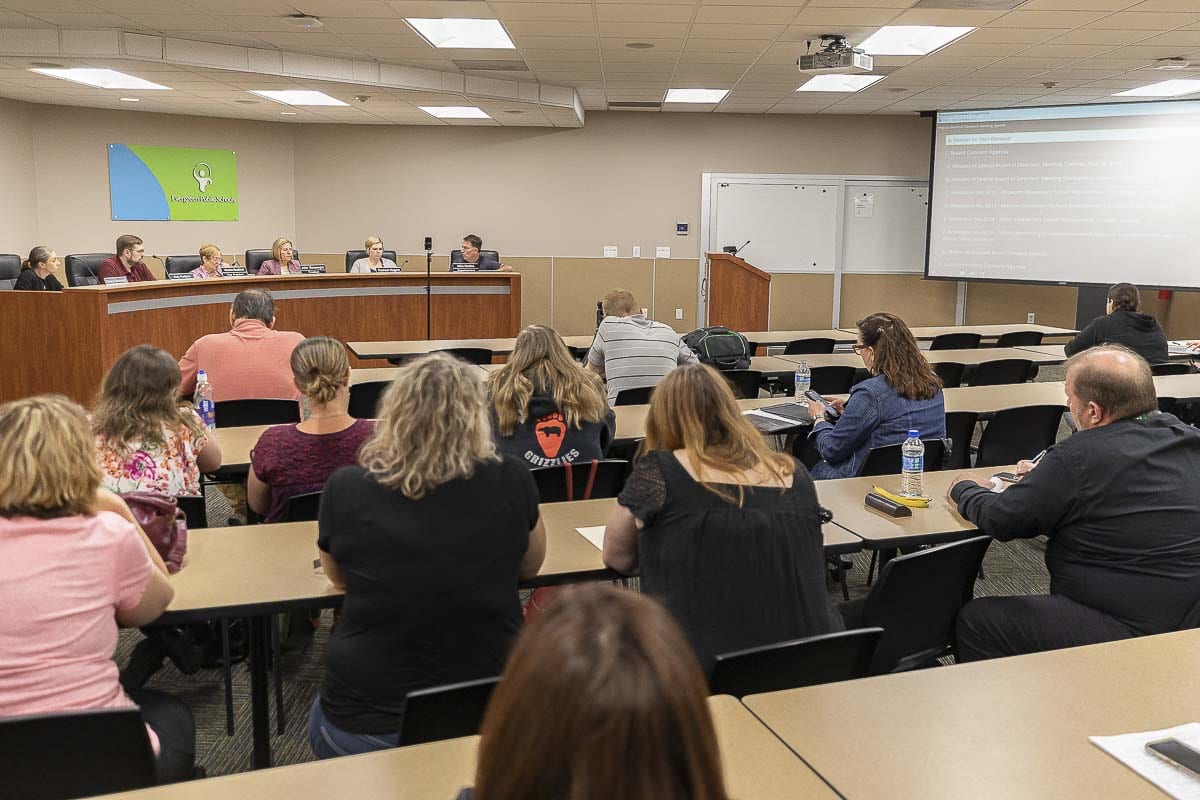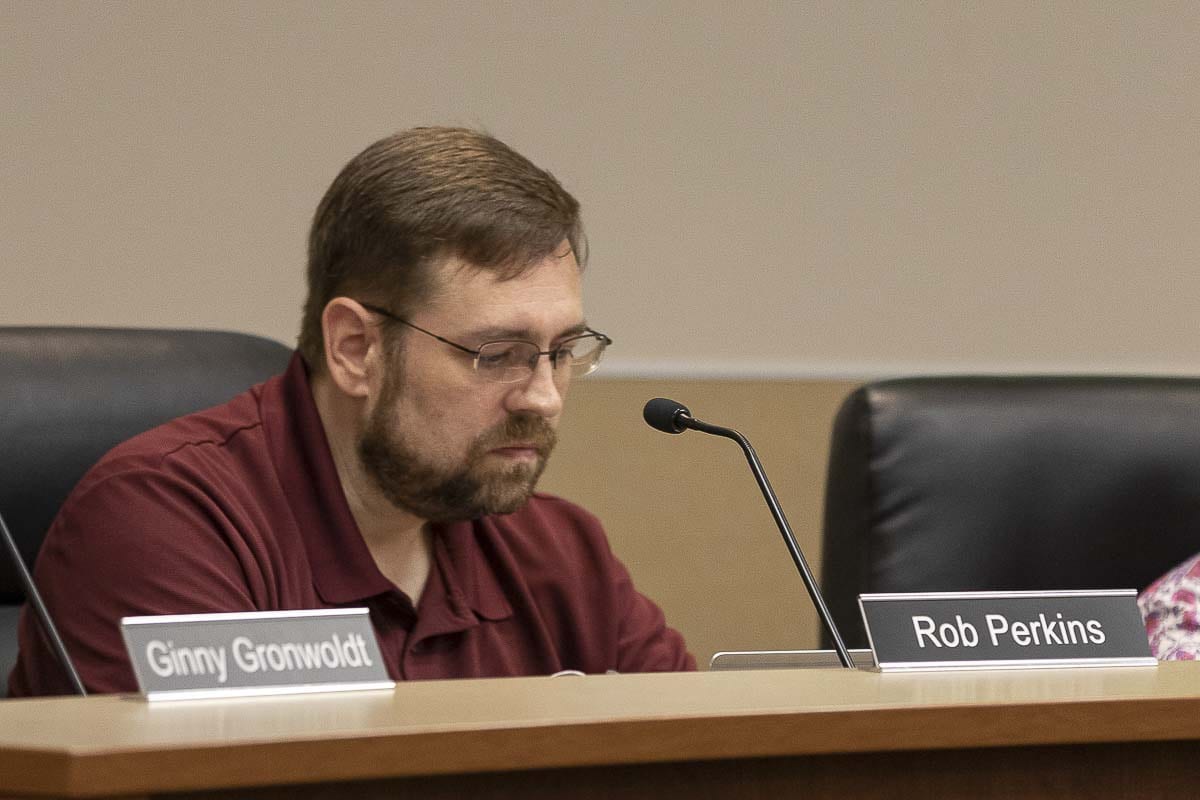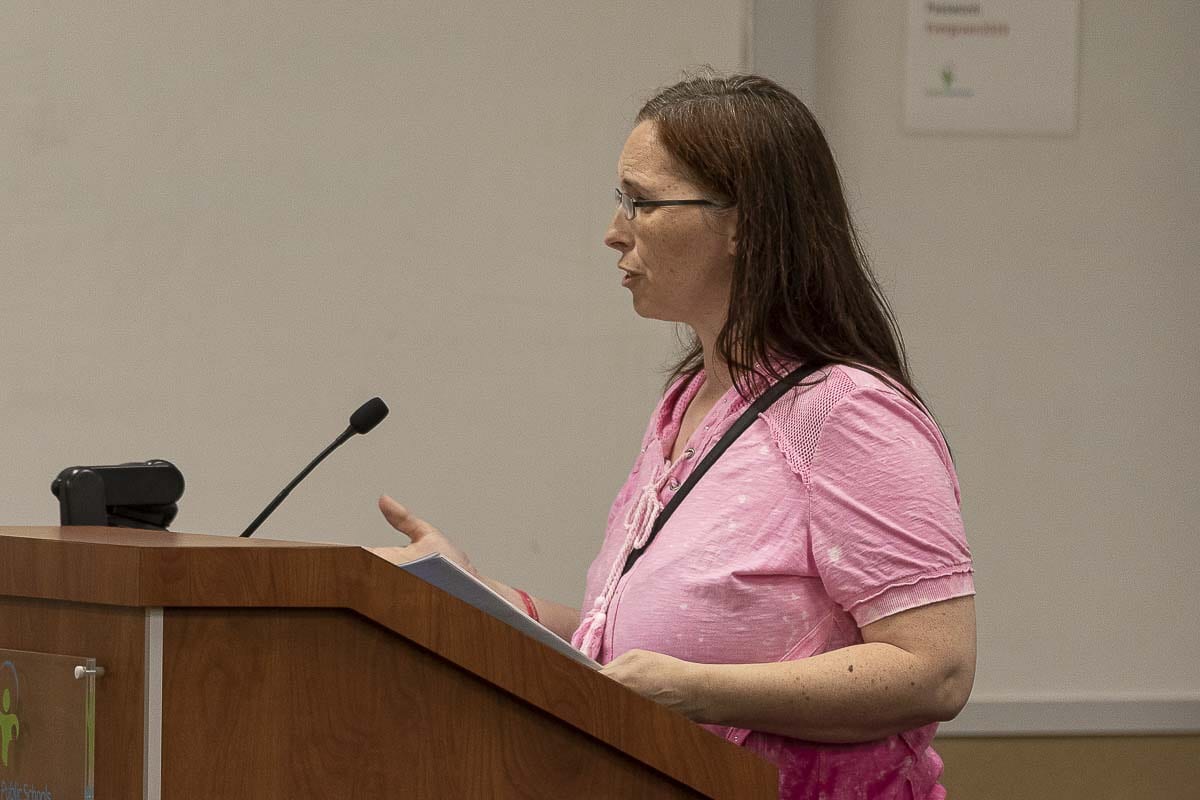The board supported school administration while admitting more needs to be done to address student concerns
VANCOUVER — It has been two weeks since Charles Chandler, a graduating senior at Heritage High School, went off-script, raking administrators over the coals for what he said was a lack of action when it came to allegations of sexual assault and bullying at the school.

Declining to apologize for comments the district called inaccurate, inflammatory, and hurtful, Chandler chose to not walk during his graduation ceremony on June 8. The 17-year-old told reporters at a walkout at Heritage the day before graduation that he believed the punishment to be worth it for the exposure his words were bringing to issues at the school. Hundreds of people online agreed, demanding that Chandler be allowed to walk in his graduation. The district refused to bend, saying that the case Chandler had brought up in his speech had been investigated, and that things hadn’t gone the way Chandler assumed.
At Wednesday’s Evergreen School Board meeting, board members expressed their own frustrations at how the post-speech controversy played out. Rob Perkins said he received an outpouring of emails and phone calls in the wake of the media firestorm.
“Some of the calls included reports of student harassment and persecution, which our school leaders must investigate and resolve,” he said in a prepared statement at the board meeting. “We have also received summaries of the investigations and conclusions of each of the rumored incidents and found that, contrary to rumor, school principals and deans of students handled each documented complaint according to outlined procedures.”

But those very procedures, other board members admitted, can contribute to the public outrage, often fueled by a lack of information from the district and school principals about how reported incidents have been handled. Often, they reminded the audience, that is due to privacy laws intended to protect both the victim and the alleged perpetrator.
“What was very challenging, as all of this was unfolding, was the belief that we were trying to, in some way, hide a problem,” said board Vice-President Victoria Bradford. “We don’t want to hide a problem. We want to do everything we can to make sure that any problems that might be out there, we’re doing everything we can to help our students, help our staff.”
Board member Ginny Gronwoldt has three children in Evergreen schools and said they have also gone through difficult situations.
“We have children in the schools, our own children have been victims of things that we have also personally had to deal with,” said Gronwoldt. “I just don’t want anybody to think that we don’t know. Because we do. And we have had children that have gone through it. And very recently. So this hits home very close to all of us. And we take it very seriously.”
Perkins said his own time as a student at Evergreen schools left a lot of what he called “toxic stress,” but he believes new policies and methods of helping children cope with school are a positive step in the right direction. But he also admitted that issues of bullying and harassment between students remains “the toughest nut to crack.”
“Virtually always the assailant or harasser in an incident is also a child, whose privacy rights exists, and whose needs are as acute as the victim,” he said. “Public discussion of details will not create the safe spaces and the safe places students need.”
Board member Rachael Rodgers said alleged victims also have an expectation of privacy, making it difficult for schools to communicate when action has been taken, and nearly impossible to address the rumors that float throughout any school.
“They don’t deserve to have what happened to them made public,” she said. “And the only way that we would be able to make public the consequences would be to also out them as victims.”
Board President Julie Bocanegra added that the rise of social media over the past decade means rumors spread easily, and victims can have details of what happened to them spread online whether they want it or not.
“One of the things I always think about when I’m scrolling through my social media feeds is people will comment just based on the headline of the story, not even reading the article and what the facts were,” said Bocanegra.
Jessica Cole, who doesn’t live in the Evergreen School District, spoke out saying she had been raped in high school but didn’t report it because she wasn’t sure how. She urged the board to consider making their policies clearer and more accessible.

“I’m grateful that Charles did speak up,” she said, “because I know it has gotten people to come forward that needed to or wanted to. I know he went off script from the speech. My perception of the response from the school was that, you know, is that the message or that reporting is not OK or welcome.”
The board said that is untrue, and they spend a lot of time meeting with high school students to hear about their experiences.
“Those conversations are really important and we hear about things, and we get a good sense of what’s happening in the schools,” said Bradford. “And kids are really honest to tell us what concerns them and why the surveys are coming out the way they are about different things.”
“Perhaps we could be clearer about policies in safety,” added Perkins. “But at the end of the day, we have to build a culture of respect from kindergarten on up. And we know that the staff at every school has been at work on building that kind of culture. And that it’s going to be an ongoing process for as long as the student body changes, which happens every single year.”
Perkins said he’s also aware that what students believe is happening in school leadership can be quite different from the reality.
“A lot of the impression that nothing is being done comes in part from students who enter the process and decided not to continue it,” he said, “but also from students who carry the assumption that leaders are a force of nature, instead of people, and can’t be approached, or they don’t know how to approach them because they’re behind a desk and an appointment or something.”
The board said they would like to explore a clearer policy regarding the handling of student allegations, and resume earlier talks about new ways for students to have a voice on the board and with district leadership.
Still, Perkins said it is his view that the conversation coming out of Chandler’s speech may prove to be a good thing, even if they believe he was misguided.
“Safe supportive school environment requires more than procedure,” he said. “This is the feeling of the community. This is the feeling of the students is that they need a way to talk about how awful this is without violating anybody’s rights.”
New law protects docs who prescribe ivermectin, hydroxychloroquine





